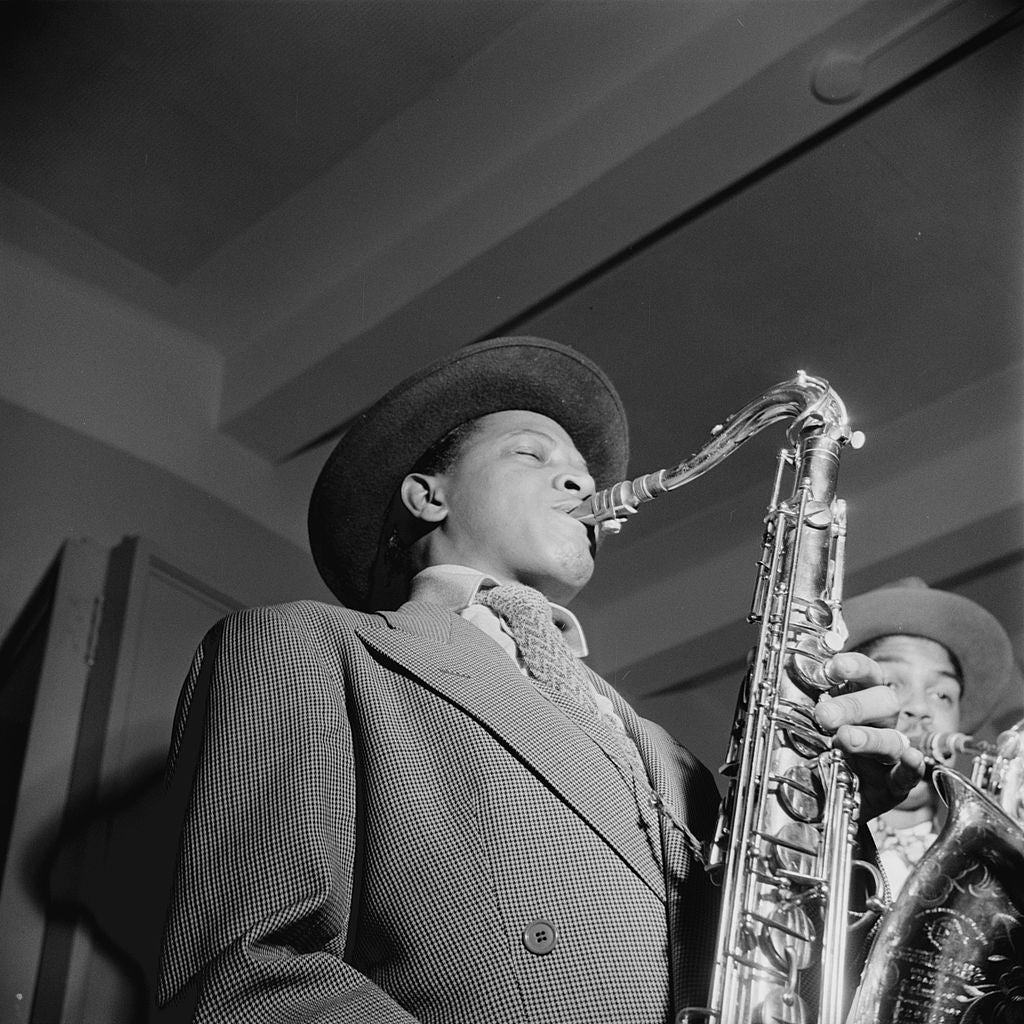Le saxophoniste Illinois Jacquet était réputé pour son jeu exubérant, puissant et swinguant, bien qu'aussi capable d'exceller sur des ballades. Son solo sur l'enregistrement de Lionel Hampton « Flying Home » en 1942 a eu une influence majeure sur les saxophonistes de rhythm and blues.
Illinois Jacquet

Illinois Jacquet was known for his exuberant, powerful and swinging playing, although he was also capable of excelling on ballads. His solo on Lionel Hampton's 1942 recording 'Flying Home' was a major influence on rhythm and blues saxophonists.
Illinois Jacquet was born Jean-Baptiste Jacquet in 1922 in Broussard, Louisiana and grew up in Houston, Texas. He began tap dancing at an early age in the band formed by his father and brothers, before trying his hand at drums and then saxophone.
He moved to Los Angeles after high school and joined Lionel Hampton's band in 1941. He became the star of the big band the following year with the release of Flying Home. His tenor saxophone solo gave birth to what would be called the "Texas tenor style" and remained emblematic for a whole generation of musicians.
Jacquet then played in Cab Calloway's (1943-44) and Count Basie's (1945-46) bands. In the meantime, he participated with his brother Russel Jacquet (trumpet player) in the first Jazz At The Philharmonic concerts, produced by Norman Granz. He joined the JATP troupe in 1946 for annual tours of the United States and eventually the world. His improvisations and wild swing were a crowd pleaser.
At the same time, he wrote many songs and recorded with his own bands. He recorded for labels such as Apollo, Savoy, Aladdin, RCA, Verve, Mercury, Roulette, Epic, Argo, Prestige.
Illinois Jacquet died in 2004, a few months after leading his band at Lincoln Center in New York. Throughout his career, the saxophonist stirred up the crowds with his powerful and rough playing, but his soft and sensitive tone can also be heard on countless ballads.
Photo credit: William P. Gottlieb